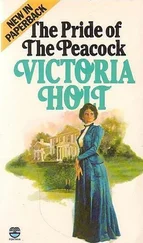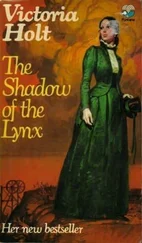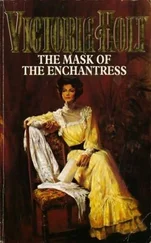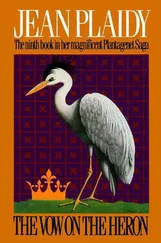Виктория Холт - The Shadow of the Pomegranate
Здесь есть возможность читать онлайн «Виктория Холт - The Shadow of the Pomegranate» весь текст электронной книги совершенно бесплатно (целиком полную версию без сокращений). В некоторых случаях можно слушать аудио, скачать через торрент в формате fb2 и присутствует краткое содержание. Жанр: Исторические любовные романы, на английском языке. Описание произведения, (предисловие) а так же отзывы посетителей доступны на портале библиотеки ЛибКат.
- Название:The Shadow of the Pomegranate
- Автор:
- Жанр:
- Год:неизвестен
- ISBN:нет данных
- Рейтинг книги:3 / 5. Голосов: 2
-
Избранное:Добавить в избранное
- Отзывы:
-
Ваша оценка:
- 60
- 1
- 2
- 3
- 4
- 5
The Shadow of the Pomegranate: краткое содержание, описание и аннотация
Предлагаем к чтению аннотацию, описание, краткое содержание или предисловие (зависит от того, что написал сам автор книги «The Shadow of the Pomegranate»). Если вы не нашли необходимую информацию о книге — напишите в комментариях, мы постараемся отыскать её.
The Shadow of the Pomegranate — читать онлайн бесплатно полную книгу (весь текст) целиком
Ниже представлен текст книги, разбитый по страницам. Система сохранения места последней прочитанной страницы, позволяет с удобством читать онлайн бесплатно книгу «The Shadow of the Pomegranate», без необходимости каждый раз заново искать на чём Вы остановились. Поставьте закладку, и сможете в любой момент перейти на страницу, на которой закончили чтение.
Интервал:
Закладка:
Anne Stafford went on her way, but before she had taken more than a few steps she turned to look again at the window.
This time she smiled. Henry’s lips seemed to be frozen; he did not acknowledge the smile but after she had disappeared he went on thinking of her.
He found that one of the grooms of the bedchamber was standing beside him. He started and wondered how long the man had been there.
“So ’tis you, Compton,” he said.
“’Tis I, Your Grace,” answered Sir William Compton. “Come to see if you have work for me to do.”
Henry strummed on the lute. “What work should I have for which I should not call you?”
“I but seek excuses to speak awhile with Your Grace.”
Henry smiled. There were times when he liked to live informally among his friends; and Sir William Compton, a handsome man some ten years older than himself, amused him. He had been Henry’s page when he was Prince of Wales and they had shared many confidences. When he had become King, Henry had given Compton rapid promotion. He was now chief gentleman of the bedchamber, as well as Groom of the Stole and Constable of Sudeley and Gloucester castles.
“Well, speak on,” said Henry.
“I was watching Lady Huntingdon pass below. She’s a forward wench.”
“And why did you think that?”
“By the glance she threw at Your Grace. If ever I saw invitation it was there.”
“My dear William,” said Henry, “do you not know that I receive such invitations whenever I am in the company of women?”
“I know it, Sire. But those are invitations discreetly given.”
“And she was not…discreet?”
“If she seemed so to Your Grace I will say that she was.”
Henry laughed. “Ah, if I were not a virtuous married man….” He sighed.
“Your Grace would seem to regret that you are a virtuous married man.”
“How could I regret my virtue?” said Henry, his mouth falling into the familiar lines of primness.
“Nay, Sire. You, being such a wise King, would not; it is only the ladies who are deprived of Your Grace’s company who must regret.”
“I’ll not say,” said the King, “that I would ask for too much virtue in a man. He must do his duty, true, duty to state, duty to family; but when that is done…”
Compton nodded. “A little dalliance is good for all.”
Henry licked his lips. He was thinking of Anne Stafford; the very way she dipped a curtsey was a challenge to a man’s virility.
“I have heard it said that a little dalliance away from the marriage bed will often result in a return to that bed with renewed vigor,” murmured Henry.
“All are aware of Your Grace’s vigor,” said Compton slyly, “and that it is in no need of renewal.”
“Two of my children have died,” said the King mournfully.
Compton smiled. He could see how the King’s mind was working. He wanted to be virtuous; he wanted his dalliance, and yet to be able to say it was virtuous dalliance: I dallied with Anne Stafford because I felt that if I strayed awhile I could come back to Katharine with renewed vigor—so powerful that it must result in the begetting of a fine, strong son.
Compton, who had lived many years close to Henry, knew something of his character. Henry liked to think of himself as a deeply religious man, a man devoted to duty; but at heart he had one god and that was himself; and his love for pleasure far exceeded his desire to do his duty. Moreover, the King was not a man to deny himself the smallest pleasure; he was a sensualist; he was strong, healthy, lusty like many of his friends; but, whereas some of them thoughtlessly took their pleasures where they found them, Henry could not do this before he had first assured himself that what he did was the right thing to do. He was troubled by the voice of his conscience which must first be appeased; it was as though there were two men in that fine athletic body: the pleasure-seeking King and the other, who was completely devoted to his duty. The former would always be forced to make his excuses to the latter, but Compton had no doubt of the persuasive powers of one and the blind eye of the other.
“There are some ladies,” mused Compton, “who are willing enough to give a smile of promise but never ready to fulfil those promises.”
“That is so,” agreed Henry.
“There are some who would cling to their virtue even though it be the King himself who would assail it.”
“A little wooing might be necessary,” said Henry, implying his confidence that if he were the wooer he could not fail to be successful.
“Should the King woo?” asked Compton. “Should a King be a suppliant for a woman’s favors? It seems to me, Your Grace, that a King should beckon and the lady come running.”
Henry nodded thoughtfully.
“I could sound the lady, I could woo her in your name. She has a husband and if her virtue should prove overstrong it might be well that this was a matter entirely between Your Grace, myself and the lady.”
“We speak of suppositions,” said Henry, laying a hand on Compton’s shoulder. He picked up his lute. “I will play and sing to you. It is a new song I have here and you shall tell me your opinion of it, good Compton.”
Compton smiled and settled himself to listen. He would sound the lady. Kings were always grateful to those who arranged their pleasures. Moreover Anne Stafford was the sister of Edward Stafford, Duke of Buckingham, an arrogant man whom Compton would delight in humiliating; for such was the pride of the Staffords that they would consider it humiliation for a member of their family to become any man’s mistress—even the King’s.
So, while Henry played his lute and sang his song, Sir William Compton was thinking of how he could arrange a love affair between the sister of the Duke of Buckingham and the King.
ANNE STAFFORD WAS BORED. She was of the Court, but it was her sister Elizabeth who had found favor with the Queen; and this was because Elizabeth was of a serious nature which appealed to Katharine.
The Queen, thought Anne, was far too serious; and if she did not take care the King would look elsewhere for his pleasure.
Anne laughed to herself; she had very good reason to believe that he was already looking.
Anne had had two husbands and neither of them had satisfied her. In a family such as theirs there had been little freedom. They would never forget, any of them, their closeness to the throne, and they were more conscious of their connection with royalty than the King himself. Through her father Anne was descended from Thomas of Woodstock, a son of Edward III; and her mother was Catharine Woodville, sister of Elizabeth Woodville who had been Edward IV’s Queen.
Anne’s father had been an ardent supporter of the House of Lancaster, and Richard III had declared him a traitor and the “most untrue creature living.” He was beheaded in the marketplace at Salisbury, thus dying for the Tudor cause, a fact which had endeared his family to Henry VII; and Henry VIII carried on his father’s friendship for the Staffords.
And what was the result? Anne had been married twice without being consulted and given a place at Court; but there she was merely a spectator of the advancement of her elder sister.
Being a Stafford, Anne was not without ambition, so she thought how amusing it would be to show her family that the way to a King’s favor could be as effectively reached in the bedchamber as on the battlefield. How amusing to confront that arrogant brother of hers, that pious sister, with her success! Once she and Henry were lovers, neither brother nor sister would be able to prevent the liaison’s continuance, and then they would have to pay a little attention to their younger sister.
Читать дальшеИнтервал:
Закладка:
Похожие книги на «The Shadow of the Pomegranate»
Представляем Вашему вниманию похожие книги на «The Shadow of the Pomegranate» списком для выбора. Мы отобрали схожую по названию и смыслу литературу в надежде предоставить читателям больше вариантов отыскать новые, интересные, ещё непрочитанные произведения.
Обсуждение, отзывы о книге «The Shadow of the Pomegranate» и просто собственные мнения читателей. Оставьте ваши комментарии, напишите, что Вы думаете о произведении, его смысле или главных героях. Укажите что конкретно понравилось, а что нет, и почему Вы так считаете.







